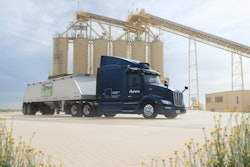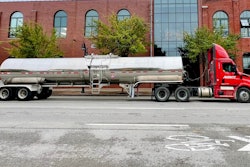Judgmental juries and plaintiffs’ lawyers looking for new ways to raise monetary judgments against trucking companies are major problems facing American freight haulers whose drivers are involved in accidents, according to one industry expert.
Trucking companies can expect to bear some responsibility when a driver is involved in an accident. But plaintiffs’ attorneys usually want to establish negligence on the part of the employer as a way to rack up punitive damages, said Michael Langford, a partner with Scopelitis, Garvin, Light and Hanson, addressing the 2003 Randall Trucking Symposium. To make matters worse, punitive damages “are almost never insurable,” Langford said. “Punitive damages are very much a threat to our industry.”
The most fertile ground for plaintiffs’ attorneys seeking to reap punitive damages is negligent hiring and retention, Langford said. If your company breaches Department of Transportation driver qualification requirements or even your own higher standards, many juries are swayed that you were negligent and, therefore, should bear greater responsibility for an accident.
In this environment, trucking companies need to take steps to protect themselves. Trucking executives, Langford said, should:
- Manage risk. Balance legal exposure against business needs.
- Follow U.S. Department of Transportation regulations “to a T.” Don’t bend them or take shortcuts to help satisfy or retain even the best of your drivers.
- Follow their own higher standards – if they have them – “to a T” as well.
- Be willing to terminate and do so immediately if a driver’s actions show him to be a potential future risk.
- Solicit third-party opinions if the question of whether to terminate a driver is a close call. These opinions could come from attorneys, industry groups or the executives of other trucking operations. This step can help you establish, if necessary, that you did not retain a driver thoughtlessly.
Langford suggested that trucking company executives concerned about liability compare their safety and hiring practices to industry standards. In the case of an accident, you may have to do this anyway, he says. Many plaintiffs’ attorneys are now using more ‘motor carrier safety consultants’ when they go to court, and using them to outline industry standards. Many judges, says Langford, are willing to let their evidence be presented as a ‘standard of reasonable care.’






